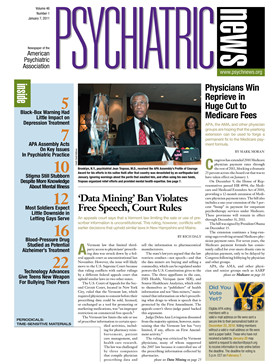A National Suicide Prevention Strategy was introduced in England in 2002.
It included initiatives such as the establishment of programs to encourage young men at suicide risk to seek help, provision of guidance to mental health clinicians on how to follow up with high-suicide-risk patients once they are discharged from the hospital, establishment of centers to track suicide trends and detect changes, provision of guidance for hospital emergency department staff on managing suicide attempts, and forwarding guidelines to the media on how to report suicides accurately without encouraging copycat suicides.
Subsequent data from the United Kingdom's Department of Health indicated that the strategy was making a difference. The department reported in 2007, for example, that the overall suicide rate among the general population in England was at its lowest since records began to be kept on the topic.
And now a new study also suggests that the strategy is making a positive difference.
The study was headed by Helen Bergen, Ph.D., a researcher at the Center for Suicide Research at the University of Oxford, and its results were published in the December 2010 British Journal of Psychiatry.
The study was based on approximately 51,000 episodes of self-harm committed by some 31,000 individuals who were treated in hospital emergency rooms in three English cities—Derby, Manchester, and Oxford—from 2000 to 2007. It found that the rate of suicide attempts declined significantly in these regions over the years studied. Moreover, two key targets of the National Suicide Prevention Strategy—suicide attempts by young men and suicide attempts by self-poisoning—both showed decreases after the program was implemented.
“The trends found in this study are in contrast to the steady increase in rates of self-harm found a decade earlier,” Bergen and her colleagues pointed out.
Other aspects of the strategy may have also contributed to the downward trend in suicide attempts, the researchers noted, although they were outside the scope of the study.
However, there may have been other reasons for the decline in suicide attempts during the study period that were not related to the strategy, the researchers acknowledged. For instance, increased use of counseling services by those with suicidal thoughts and establishment of Internet sites for self-help and support may have made a difference.
Stable economic growth and decreasing rates of unemployment during the study period may have helped as well. Since 2007, however, England has experienced a recession and a rise in unemployment. Thus, suicide-attempt data from 2007 onward might give better insight into how much of the decline in suicide attempts from 2000 to 2007 was due to the strategy and how much was due to a good economy, the researchers suggested.
The study was funded by the U.K. Department of Health.
